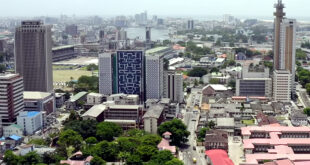In a surprise move, Ethiopia announced Tuesday that it would fully accept the 12 December 2000 Algiers Agreement between the governments of Eritrea and Ethiopia, which established a special boundary commission.
The Algiers Agreement stipulated that the two states, fresh out of a two-year costly war, would accept a decision by the Eritrea-Ethiopia Boundary Commission (EEBC) as “final and binding.”
However, when the EEBC delivered its decision awarding the town of Badme, the epicentre of the war that killed tens of thousands from both sides, to Eritrea on 13 April 2002, Ethiopia backtracked from its commitment with the late Prime Minister Meles Zenawi eventually declaring Ethiopia would only accept the EEBC decision “in principle,” leading to sixteen years state of no war no peace between the two countries.
Eritrea had accepted EEBC’s decision and refused to submit to any further negotiation without the prior acceptance by Ethiopia of the commission’s decision.
Analysts say by accepting the Algiers Agreement Ethiopia will have to withdraw its occupying forces from all territories awarded to Eritrea by the EEBC, including the flashpoint town, Badme.
Ethiopia has also called on Eritrea to reciprocate the decision and work toward bringing a lasting peace between the people of the two countries.
The war between the two countries began on 6 May 1998, sparked by a battle for control of the border town of Badme – a humble, dusty market town with no apparent value.
The war ended in June 2000, but it was another six months until a peace agreement was signed, establishing the EEBC.
It was meant to settle the dispute over Badme once and for all. But its “final and binding” ruling 18 months later, awarding Badme to Eritrea, was not accepted by Ethiopia without the preconditions of further negotiations with Eritrea.
Adira Kallo
 THE AFRICAN COURIER. Reporting Africa and its Diaspora! The African Courier is an international magazine published in Germany to report on Africa and the Diaspora African experience. The first issue of the bimonthly magazine appeared on the newsstands on 15 February 1998. The African Courier is a communication forum for European-African political, economic and cultural exchanges, and a voice for Africa in Europe.
THE AFRICAN COURIER. Reporting Africa and its Diaspora! The African Courier is an international magazine published in Germany to report on Africa and the Diaspora African experience. The first issue of the bimonthly magazine appeared on the newsstands on 15 February 1998. The African Courier is a communication forum for European-African political, economic and cultural exchanges, and a voice for Africa in Europe.
































